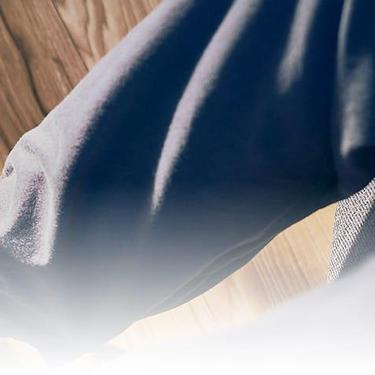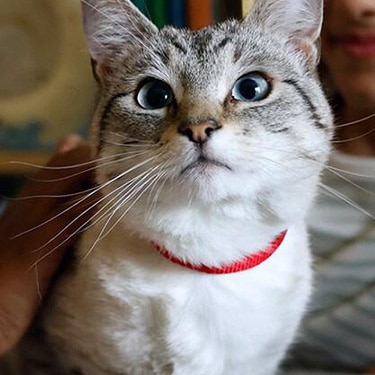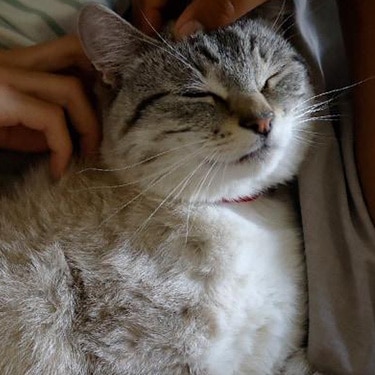
-
Find the right food for your petTake this quiz to see which food may be the best for your furry friend.Find the right food for your petTake this quiz to see which food may be the best for your furry friend.Featured products
 Perfect Digestion Small & Mini Adult Dog Food
Perfect Digestion Small & Mini Adult Dog FoodHill's Science Plan Perfect Digestion Small & Mini Breed Adult Dog Food with Chicken & Brown Rice supports ultimate digestive well-being & a healthy microbiome.
Shop Now Perfect Digestion Large Breed Puppy Food
Perfect Digestion Large Breed Puppy FoodPrecisely balanced nutrition with Hill's ActivBiome+ prebiotic blend actively contributes to supporting digestive health and overall well-being to help your pet feel their best
Shop Now Small & Mini Mature Adult 7+ Dog Food
Small & Mini Mature Adult 7+ Dog FoodHill's Science Plan Small & Mini Breed Mature Adult Dog Food with Chicken is a complete pet food, specially formulated with ActivBiome+ Multi-Benefit Technology.
Tailored nutrition to support graceful ageing in small dogs. Specially made with a synergistic blend of nutrients for energy & vigor.Shop NowFeatured products Hypoallergenic Dry Cat Food
Hypoallergenic Dry Cat FoodHILL'S SCIENCE PLAN Hypoallergenic Adult cat food with egg & insect protein is a complete pet food for adult cat 1–6 years old. It's formulated for cats with delicate skin and stomach, with limited high quality novel protein sources & no grain.
Shop Now Kitten Food
Kitten FoodTender chicken chunks in gravy for kittens, with omega-3s for healthy eye & brain development and high-quality protein to support muscle growth. With balanced minerals to promote strong bones & teeth.
Shop Now Hairball & Perfect Coat Adult Cat Food
Hairball & Perfect Coat Adult Cat FoodHill's Science Plan HAIRBALL & PERFECT COAT Adult cat food with Chicken is specially formulated to effectively help avoid hairball formation in adult cats while promoting a beautiful coat. Thanks to its mix of essential Omega-6 fatty acids, this food benefits the cat's skin and fur keeping them healthy and shiny. Our Advanced Fibre Technology helps reduce hairballs by naturally promoting their passage through the gut. This food is formulated with high-quality protein for a perfectly balanced, great-tasting recipe.
Shop Now -
Dog
- Dog Tips & Articles
-
Health Category
- Weight
- Food & Environmental Sensitivities
- Urinary
- Digestive
- Joint
- Kidney
-
Life Stage
- Puppy Nutrition
- Adult Nutrition
- Senior Nutrition
Cat- Cat Tips & Articles
-
Health Category
- Weight
- Skin & Food Sensitivities
- Urinary
- Digestive
- Kidney
-
Life Stage
- Kitten Nutrition
- Adult Nutrition
Featured articles Understanding Your Pet's Microbiome
Understanding Your Pet's MicrobiomeLearn what a pet's microbiome is, how it contributes to your pet's gut & overall health, and why nutrition is important in maintaining healthy microbiomes.
Read More The Right Diet For Your Pet
The Right Diet For Your PetLearn what to look for in healthy pet food & nutrition, including ingredients, quality of the manufacturer, your pet's age, and any special needs they have
Read More Pet Food Storage Tips
Pet Food Storage TipsWhere you store your cat and dog food can make a big difference in the quality and freshness once it is opened. Here are some common questions and recommendations for optimal storage for all of Hill’s dry and canned cat and dog food.
Read More -


Weight Management in Cats
South African vets say more than half the patients they treat are overweight. The fact is... obesity is the number one health problem faced by pets today. If your cat is overweight, she can develop all kinds of health problems such as painful arthritis, heart disease, breathing difficulty, diabetes and even bladder cancer. For your cat, the excess weight and the resulting health problems can mean less play time and depression.
How can you tell if your cat is overweight? First, your veterinarian will weigh your cat at her regular check-ups. Between checkups, place your hands on her side - are her ribs hard to feel or even impossible to feel? If so, she is likely overweight.
There are many easily identifiable causes of weight gain in cats:
Overfeeding - Cats with unlimited access to food understandably eat more than they need.
Overeating - Many commercial foods are loaded with salt and fat. This improves taste, which means your cat will want to gorge.
Feeding habits - Feeding table scraps and "people food" can lead to obesity.
Lack of exercise - Too much food and too little exercise produces a typical result: obesity.
Age - Older, less active cats are prone to weight gain.
Gender - Female cats are more likely to become overweight.
Neutering - Spayed or neutered cats are twice as likely to become obese due to a more sedentary lifestyle. (There are many important health reasons to have your pet spayed or neutered - just remember to monitor your cat's weight.)
Why is overweight a problem?
A lot of different diseases are seen more often in cats that are overweight. Sadly these cats also tend to be less comfortable and content. Some of the most common problems that can occur in overweight cats are:


Tasty Tips
- Diabetes
- Arthritis
- Skin problems
- Urinary tract problems
- Heart problems
- Higher risk of cancer
In cats over 7 years of age, the risk of dying is almost 3 times higher in overweight cats compared to cats with a normal weight.
This is why it is so important to:
- Keep your cat slender
- Help her lose weight if she is already overweight
Some tips
Your vet is the best person to help you set a healthy eating programme for an overweight cat but these tips should also give good results:
- Cats should have multiple small meals every day. If you are away from home a lot, try a food ball or a mechanical food dispenser
- If she begs for food give her extra cuddles and attention instead
- Make sure you set time aside every day to play with your cat - treat her to some new toys or just use scrunched up paper
- Buy a tall scratching post to encourage your cat to climb
- Consider getting a kitten to keep your cat company. Ask your vet what breed would be best for your cat
- Watch out for cat treats - they contain lots of calories
- Ask your vet to recommend a weight management food
Food plays a very important role in treating an overweight cat. Along with exercise, a low-fat and low-calorie food is essential in helping your cat lose weight and stay fit. Fibre is also a key ingredient since it helps your cat eat less while keeping her full.
Once your cat has been overweight, she may be prone to weight gain and should have an ongoing weight-management plan based on good nutrition, exercise and regular check-ups and weigh-ins.
For an accurate diagnosis and treatment options, always consult your veterinarian.


One of our staff authors prepared this article for you
Related products

Hill's Science Plan Adult Cat Food with Chicken is a complete pet food, specially formulated with ActivBiome+ Multi-Benefit Technology.
This food is specially formulated to fuel the energy needs of cats during the prime of their life.

Hill's Science Plan HAIRBALL & PERFECT COAT Adult cat food with Chicken is specially formulated to effectively help avoid hairball formation in adult cats while promoting a beautiful coat. Thanks to its mix of essential Omega-6 fatty acids, this food benefits the cat's skin and fur keeping them healthy and shiny. Our Advanced Fibre Technology helps reduce hairballs by naturally promoting their passage through the gut. This food is formulated with high-quality protein for a perfectly balanced, great-tasting recipe.

Tender chicken chunks in gravy for kittens, with omega-3s for healthy eye & brain development and high-quality protein to support muscle growth. With balanced minerals to promote strong bones & teeth.

HILL'S SCIENCE PLAN Hypoallergenic Adult cat food with egg & insect protein is a complete pet food for adult cat 1–6 years old. It's formulated for cats with delicate skin and stomach, with limited high quality novel protein sources & no grain.
Related articles

Discover which cat toys games your feline friend might like, and how they are great sources of exercise. Explore our library of articles to learn more.

Discover what you can do to spot and support a sensitive cat stomach. See what routines and food you can implement to help your cat be happy and healthy.

Find out about how you can support your cat's digestion to boost overall health. Diet is key to a long and happy life for your cat, so discover what you can do.

When learning how to train your cat, you'll start with very basic first steps that both reward good behavior and discourage the bad.

Put your cat on a diet without them knowing
Our low calorie formula helps you control your cat's weight. It's packed with high-quality protein for building lean muscles, and made with purposeful ingredients for a flavorful, nutritious meal. Clinically proven antioxidants, Vitamin C+E, help promote a healthy immune system.
Put your cat on a diet without them knowing
Our low calorie formula helps you control your cat's weight. It's packed with high-quality protein for building lean muscles, and made with purposeful ingredients for a flavorful, nutritious meal. Clinically proven antioxidants, Vitamin C+E, help promote a healthy immune system.

